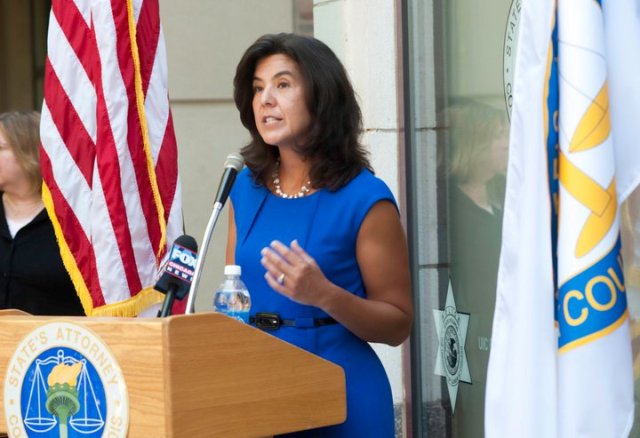State's Attorney To Stop Prosecuting Low Level Drug Offenses
By aaroncynic in News on Apr 20, 2015 7:00PM
Cook County State’s Attorney Anita Alvarez announced today “sweeping” changes in the way the County will address low level drug offenses. Under the new plan, the State’s Attorney’s Office will no longer prosecute the majority of cases involving misdemeanor pot possession and will divert class 4 felony offenders to alternative treatment programs. Additionally, low-level juvenile offenders will be referred to community based education and mentorship programs.
“The methods in which we are handling low level drug cases here in Cook County are simply not working,” said Alvarez in a press release. “Under our current policies and practices, we continue to see the same individuals revolving in and out of our criminal justice system with no meaningful impact or outcome and at a significant cost to taxpayers.”
Class 4 felony drug possession cases accounted for nearly a quarter of the 40,000 cases handled by the State’s Attorney’s office last year. More than 15,000 of those were misdemeanors for marijuana possession. Now, individuals in possession of less than 30 grams of pot will no longer face misdemeanor charges, provided they have less than three arrests or citations for a similar offense. Additionally, anyone with Class 4 felony charges of possession of a controlled substance, which include heroin and cocaine, or possession of marijuana will be referred to a newly created Drug Deferred Prosecution Program. People with a history of violence in their criminal records, however, will be exempt.
Alvarez told Crain’s the move wasn’t meant to be a push for legalization, but a way for users to get help. “We’re not being soft on crime,” she said, "we’re being smart."
A spokesperson for the Chicago Police Department praised the move. “Mayor Emanuel has long believed that reducing penalties for nonviolent, low-level drug offenses saves taxpayer dollars and, more importantly, keeps nonviolent offenders from a lifetime in the criminal justice system,” Martin Maloney told the Sun-Times. Cook County Sheriff Tom Dart’s office was also pleased, telling the Tribune it applauded the effort “to find a more productive approach to low level, nonviolent drug offenses.”
That the announcement fell on 420 was “pure coincidence,” according to a spokesperson for Alvarez’s office.
